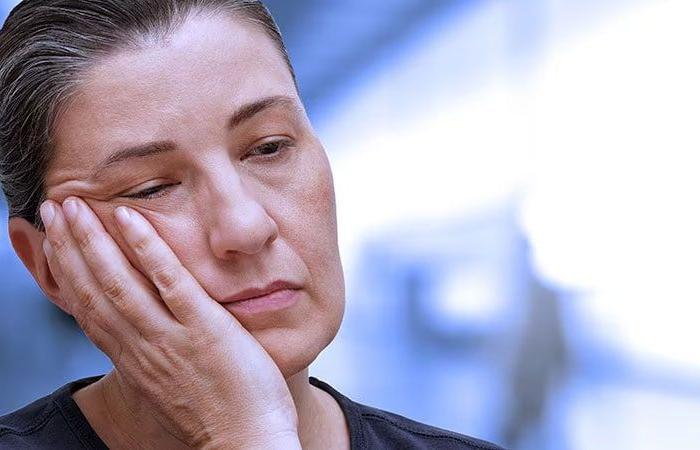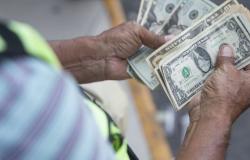A new statement of position of the American Academy of Sleep Medicine (AASM) Highlights drowsiness as a key symptom of sleep disorders and vigil, and a variety of psychiatric and neurological disorders, and asks medical professionals to prioritize the evaluation and treatment of drowsiness in their patients.[1]
The Academy published the statement because it wanted Medscape Medical News The co -author, Dr. Indira Gurubhagavatula, director of the Sleep Medicine Scholarship and Professor of Medicine at Perelman school of Medicine of the University of Pennsylvania, in Philadelphia, United States.
“We wanted to raise awareness so that everyone duly keep in mind the drowsiness in medical practice or in the evaluation of research results,” he said.
The statement was posted in electronic version on April 14 in the Journal of Clinical Sleep Medicine.[1]
Long -range effects on Health
Excessive drowsiness during the day is a distinctive characteristic of hypersomnia disorders such as narcolepsy and idiopathic hypersomnia and is a key symptom associated with the obstructive sleep apnea, chronic insomnia disorder, restless legs syndrome and shift work disorder.
Other conditions associated with sleepwalking include infections, inflammatory conditions, structural problems that affect the brain such as a stroke or a traumatic brain lesion, hypothyroidism and other diseases that affect the endocrine system, neurodegenerative diseases, psychiatric conditions and behavioral disorders.
The prescription and free sale drugs can also have the secondary effect, and the doctors should consider the possibility of drowsiness when selecting a pharmacological treatment for their patients, particularly for older adults or patients with more than one medical condition, they wrote Dr. Gurubhagavatula and his collaborators.
Specific drug classes that can cause drowsiness include benzodiazepines, non -benzodiazepine, anticonvulsive, antipsychotic, anticholinergic, antidepressants and antihistamines.
Somnolence also contributes to worse response times, attention failures and worse performance at work or at school.
People can also have difficulty distinguishing between drowsiness and fatigue or fatigue. “While they are interrelated, drowsiness and fatigue, which refers to physical exhaustion, are different phenomena,” wrote the author.
“Somnolence is a serious health problem with large -range consequences,” said Dr. Eric J. Olson, president of the American Academy of Sleep Medicine, in a press release. “From accidents for driving with drowsiness to work errors and long -term health risks, the effects of excessive diurnal drowsiness affect people already daily. Since a third of American adults report that they experience excessive drowsiness, it is essential to identify interventions that recognize it, evaluate and treat.”[2]
-While the public tends to be more aware of the insomnia and their link with poor health, people are less aware of health problems that can cause excessive drowsiness.
Dr. Ruth Benca, professor of psychiatry and behavioral medicine at the Wake Forest University Faculty of Medicine, in Winston-Salem, North Carolina, who did not participate in the statement, he said a Medscape Medical News That he believes that, as a society, we suffer chronic sleep deprivation. We have suffered it for decades. Not sleeping is a horror, and we have a workforce that suffers chronic sleep deprivation, he said.
“The fact is that the health risks of sleeping too much or feeling excessively sleepy because it does not sleep enough are probably as big as the problems of not being able to sleep,” said Dr. Benca.
A red flag
It may be difficult to determine the root cause of drowsiness in the clinic. When a patient tells a health professional who is sleepy, it should be an alert signal and “a real indication that it is necessary to find out what happens to him,” said Dr. Benca.
The first step is to consider whether a person who informs to have excessive sleepiness sleeps enough at night and then move on to other factors, such as a possible sleep disorder, a side effect of a medication, abuse of a substance or other cause.
However, a problem is that a dream study to confirm excessive drowsiness requires a test that lasts all day, said Dr. Benca. “For the vast majority of sleepy people, who represent a large part of the population, we do not have precise measures or easy -to -manage objective tests to evaluate it,” he said.
The authors and authors of the Declaration of Position recognized this gap in the investigation and pointed out that there is the need for “objectively measured and reliable biomarkers of excessive drowsiness, including blood biomarkers, other physiological and metric markers derived from the analysis of electroencephalograms records obtained during vigil and sleep.”
They also requested greater use of drowsiness as a result of clinical trials of possible treatments for sleep and vigil disorders, and for research in populations of more diverse patients.
“Future addresses are research and better treatments, but I think that the education and education of the public also about the importance of sleep and the risks of not sleeping enough,” said Dr. Benca.
The author team has declared financial relations in the form of employment, consultancies, research and training scholarships, and advisory positions for the American Academy of Sleep Medicin, APNIMED, Axsome Therapeutics, EISAI, Ensadata, Idorsia, Merck, Nox Health, Primunas and ResmeM, can be consulted in the publication. Dr. Benca declared to be a consultant of Alkermes, Biogen, Eisai, Haleon and Idorsia, and having received subsidies from EISAI and the National Institutes of Health (NIH) of the United States.
This content translated from the English edition of Medscape.






